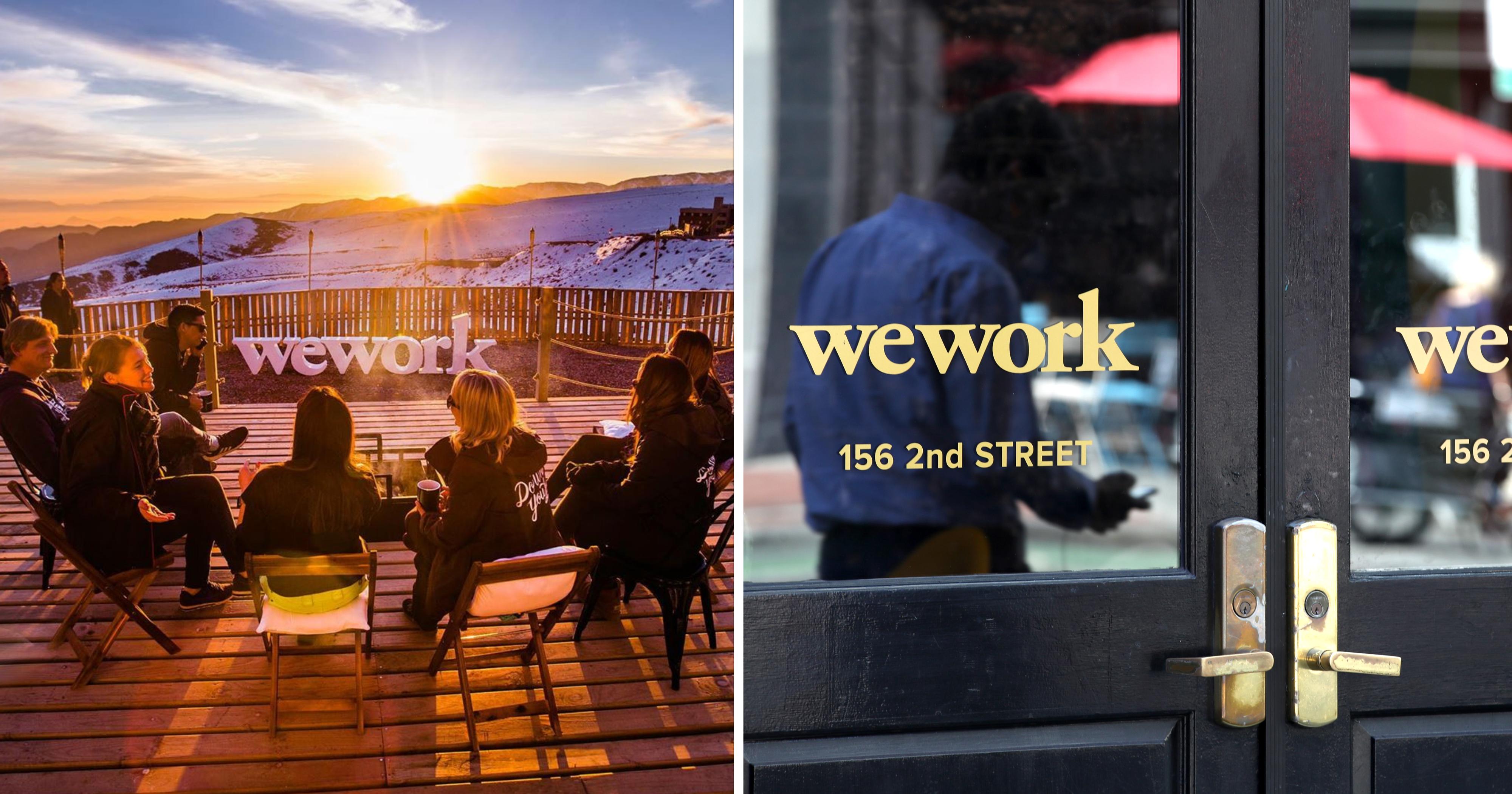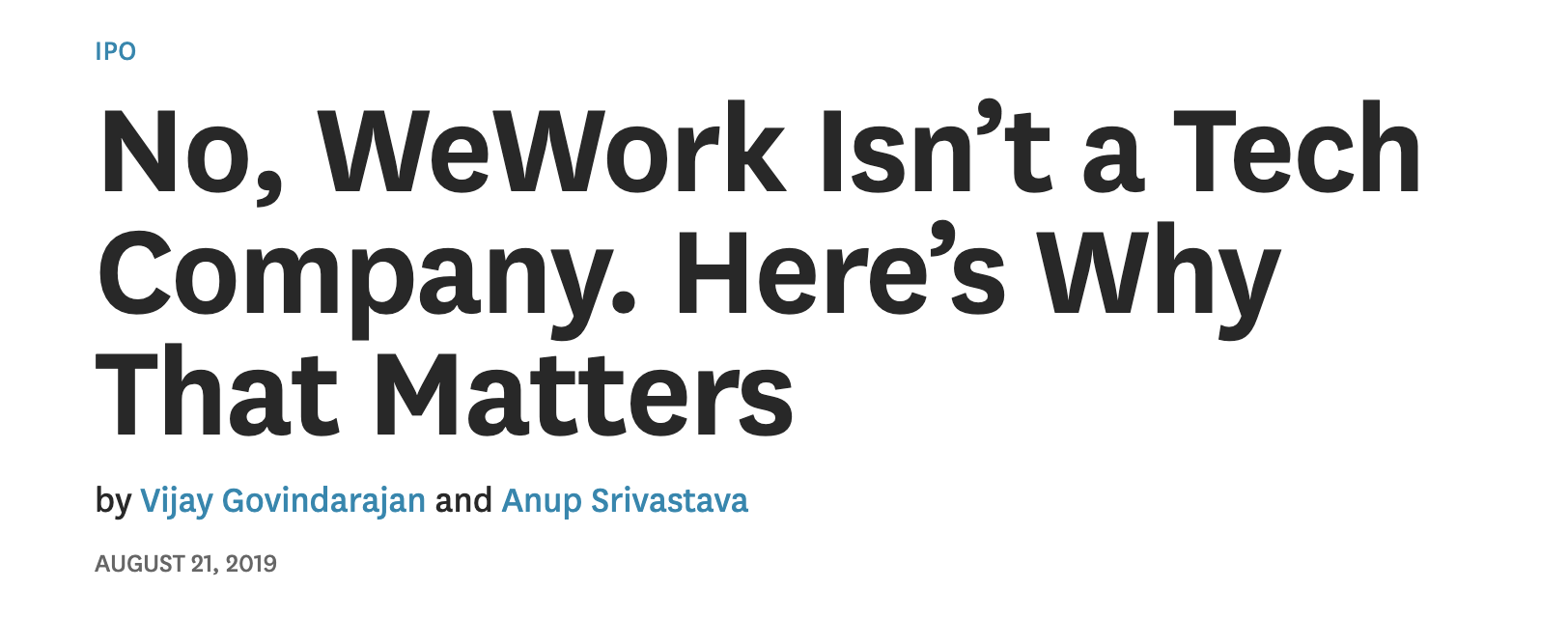WeWork has officially accepted a bailout offer from Softbank, their largest shareholder (more on them later).
According to Forbes, the bailout could see WeWorks being valued at around US$7.5 billion to US$8 billion (S$10.23 -S $10.9 billion), with Softbank holding 80 per cent of the shares.
While this is still an astronomical figure, it is a steep fall from their earlier valuation this year of US$47 billion (S$64 billion).
So what caused this dramatic dip?
Softbank and hard times
In 2010, Adam Neumann and Miguel McKelvey started WeWork.
WeWork is a commercial real estate company that provided shared office space for technology startups and services for other enterprises.
Basically leasing office space.
It was considered real revolutionary when it first came out too.
In fact, they grew from leasing 82 sq meter of space in 2010 to 3,615 sq meter in 2015.
That growth attracted a steady stream of investors. Even among these mind-bending sums, one investor stood out.
Softbank.
Softbank was originally a computer parts store, it's grown slightly since. Now, it runs Vision Fund, the world's largest technology-focused venture capital fund, with over $100 billion in capital.
And not an insignificant amount of that has been invested in WeWork.
In 2017, they invested US4.4 billion in WeWork, they followed that up with a US$3 billion investment in November 2018, and a further US$2 billion in January 2019.
This led to WeWork's skyrocketing value, from US$20 billion, to US$47 billion, which is made even more stark by the fact that the US$20 billion valuation was that high mainly due to WeWork's 2017 investment.
And all this was leading up to the big initial public offering (IPO).
IP-No
On August 14, 2019 WeWork filed their papers, which led to some pertinent questions.
Namely, how it was going to be profitable and the actions of their CEO, Adam Neumann.
Losses
Somehow despite its insanely lofty valuation, WeWork is still not profitable.
According to Financial Times, WeWork was making a loss of US$219,000 every hour during the 12 months leading up to March, 2019.
Concerns were also raised over their owner, Neumann. From bizarre proclamations like wanting to live forever and being the first President of the World, to leaving a cereal box stuffed with marijuana on a private plane and drinking tequila during meetings.
Concerns over the owner were addressed quite succinctly, namely being handed a US$1.7 billion golden parachute. Although staff were reportedly not happy with him getting that large amount.
The issue of paving a path to profitability is still quite a concern. With a WeWork analyst even calling the IPO filing a "masterpiece of obfuscation".
An article by Harvard Business Review tried to spell out what they thought was a major problem with WeWork's classification.
That same analyst, Rhett Wallace, estimated that a tenant had to stay in place at a WeWork office space for 13.5 years on average, before the costs break even for the company.
And that estimate is without the aid of knowing just how much WeWork's customer acquisition cost, how much it costs to get a consumer to buy your product or service.
Which basically leaves them at a potentially precarious situation during economic downturns.
According to BBC:
"The company rents office space for the long term, subletting that space to firms and individuals on more flexible lease terms. That could leave it on the hook for lease payments even if tenants grow scarce."
And all that played a huge part in undermining investor confidence, eventually leading to WeWork delaying their IPO.
What's next
Other than the massive revaluation of the company, they have also hired two CEO's to lead them to the eventual goal of an IPO.
Artie Minson and Sebastian Gunningham are already starting to trim down on costs. They are in the process of selling three companies acquired during Neumann's reign, a US$60 million private jet and there are even talks of possibly laying off up to 5,000 employees.
Despite the failed IPO, WeWork is adamant that they can get this through by the end of the year.
Image from Justin Sullivan/Getty Images and WeWork Insta
If you like what you read, follow us on Facebook, Instagram, Twitter and Telegram to get the latest updates.



